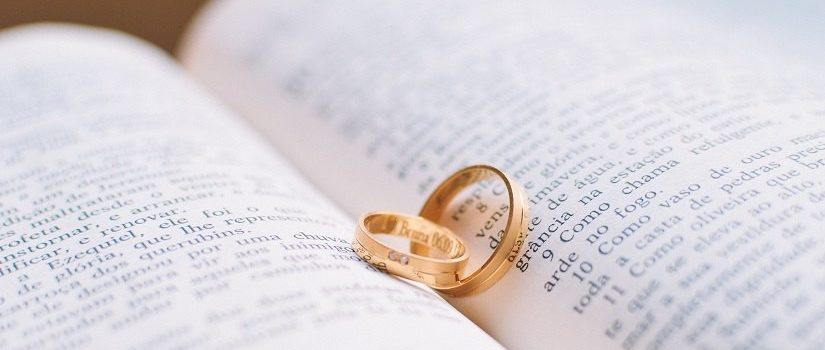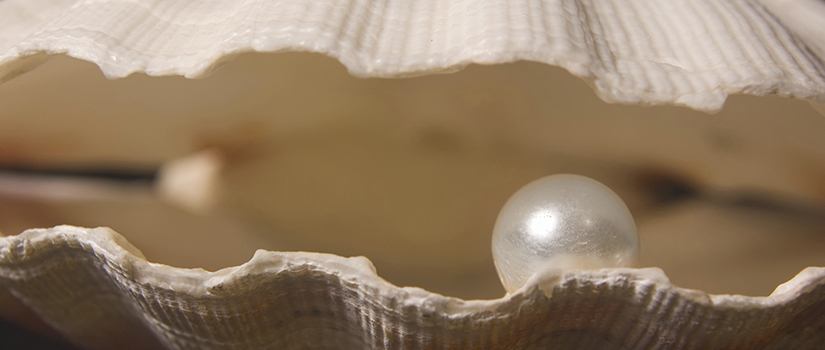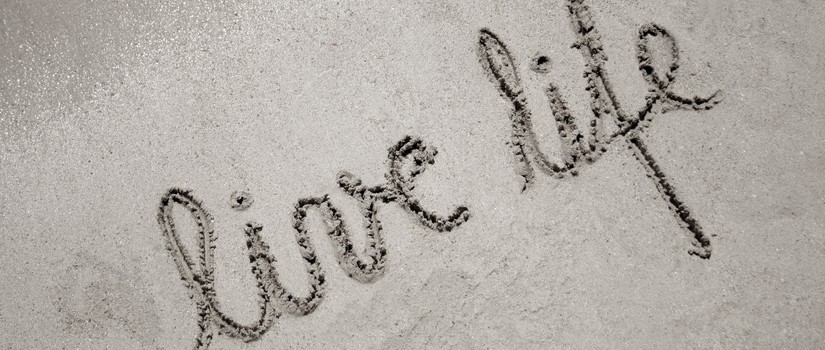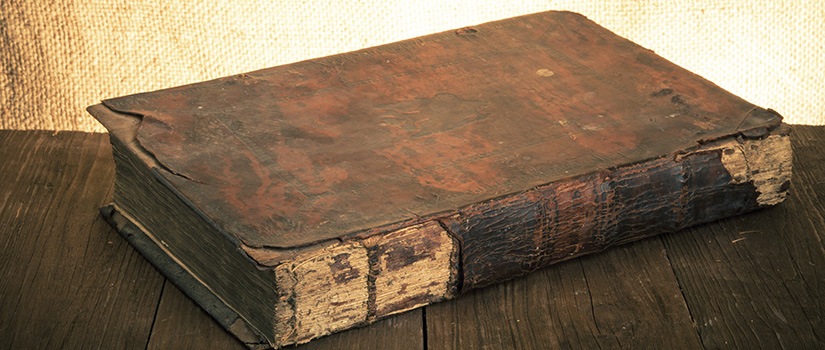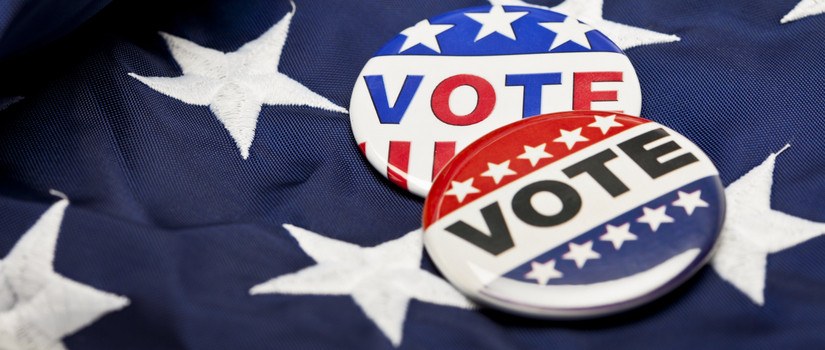The Day Before The Wedding
By, James L. Thornton
Genesis 24:62. “And Isaac came from the way of the well Lahairoi; for he dwelt in the south country. 63. And Isaac went out to meditate in the field at the eventide: and he lifted up his eyes, and saw, and, behold, the camels were coming.
This is a part of one of the greatest romance stories in the Bible. Isaac is a type of Christ, Rebekah is a type of the Church, and “Eliezer of Damascus” the servant, and a friend of the bridegroom, is a type of the Holy Spirit.
It’s late afternoon the day before Isaac’s wedding—Abraham’s servant has performed his errand to perfection—the prospective bride had answered his question—“I will go,” and now the long hot tiresome journey is over, and they are nearing his master’s tent with Isaac’s bride in his care.
No doubt the servant had sent a messenger ahead with the news that they were nearly home. Isaac was expecting them that day. “And Isaac went out to meditate in the field,” and wait and look for their arrival. All that day Isaac had spent in prayer and meditation. He had much that day to think about.
He thought of his father Abraham, now very old, and all the stories he had told him of leaving his country of birth, and about how God had revealed himself to him as the only true and living God.
He thought about his mother Sarah, now dead and buried in a cave in Mam-re, and her grieving about being childless.
He thought about his own wonderful birth when his parents were very old.
He thought of Hagar his Egyptian nurse.
He thought of Ishmael his half-brother.
He thought of them being cast out and this very well he was dug by an angel.
He thought of Mount Moriah, where he almost died, it was his Gethsemane. It was his Calvary.
As soon as he got a tent of his own, he went to dwell by that well which the angel had dug for Hagar and Ishmael. To Isaac, that well-meant life—but in that tent there was loneliness, it lacked something. There were servants by the dozens, yet there was loneliness.
It was the last day; the servant had been gone many weeks. But the wait was almost over. “And he lifted up his eyes, and saw, and, behold the camels were coming.”
Let us for a moment shift our thought backward for a few weeks into the land of Mesopotamia and into a home where a momentous event is taking place, a young girl is standing in the midst of her family when a question is asked of her.
Genesis 24:58a. And they called Rebekah, and said unto her, Wilt thou go with this man? …”
There is no doubt that Eliezer breathed another prayer as he anxiously awaited Rebekah’s answer. Genesis 24:58b. …? And she said I will go. (KJV)
When consulted, Rebekah made the most important decision she would ever make in her life, she simply said, “I will go.” We said earlier Rebekah is a type of the Church, the called out Bride of Christ. Christ’s Bride is asked if she is willing to go. The Bride makes the choice to go. The greatest choice a person can ever make when the invitation comes “I will go.”
Genesis 24:61b. …, “And they rode upon the camels, and followed the man: and the servant took Rebekah, and went his way.”
What a picture we have here of the Church in her journey to meet the Bridegroom. This was no joy ride on a camel for a few minutes, but a long journey across some of the most inhospitable land in the world. The journey would cover nearly five hundred miles, and take probably four to five weeks.
They would follow the trade routes along the Euphrates river then drop down through Syria into Canaan. The first week or two they would be near the river where there would be grass and water and cool breezes.
They would pass through small villages where the people would turn out to see them pass. They would only stop long enough to rest a short while, and for the camel drivers to feed and water the camels, then hurriedly mount and ride on, because Eliezer was anxious to get home and present the Bride.
The first few days passed quickly, and Rebekah was excited, with visions of her new home, and thoughts of her husband floating through her mind. About the middle of the second week, she would begin to notice that the camel was not comfortable to ride on.
Into the third week she would begin to notice that the camel’s breath smelled bad, in fact, it just plain stunk. A camel is one of the most foul smelling animals in the world.
By the fourth week they had left the river and entered the desert, with only an occasional oasis to break the miles and miles of sand, and the heat was suffocating. The drudgery of the journey, the monotony of long hours of the plodding of the camels, the day never seemed to end where she could lie down and rest her weary body.
Her mind would begin to wander back and forth between the home she had left in Mesopotamia, and the place of which this stranger had told her of. “Is there really such a place?” She may have begun to question her decision.
“Did I do the right thing?” “Will I fit into this family?”
“Will my Husband love me?” “Will we ever get there?”
Does this sound like our Christian experience? When we first start our walk with the Lord we are excited beyond measure, by faith we have accepted his offer to remove our sins by his atoning blood. He filled us with his Spirit, and with that filling came many great and precious promises, including eternal life in a Mansion in Heaven.
2 Peter 1:4. “Whereby are given unto us exceeding great and precious promises: that by these ye might be partakers of the Divine Nature, having escaped the corruption that is in the world through lust.”
He promised to comfort our hearts in times of distress. He also gave us many precious gifts. After all, we are his espoused Bride. We are in a sense like unto Rebekah. Eliezer had given her some very precious gifts, along with some great promises that her husband was very rich, and these things he had given her were just a sample of what was waiting for her when they reached her new home.
Rebekah went with Eliezer on the faith she had in his words. She believed in someone whom she had never seen, in like fashion we also believe in the words of Holy Scripture.
I Peter 1:8. “Whom having not seen, ye love; in whom, though now ye see Him not, yet believing, ye rejoice with joy unspeakable and full of glory:”
Eliezer did not promise Rebekah that the ride home would be a bed of roses, on the contrary, she understood that the way was long, and the conditions would be harsh. But I’m sure Eliezer (a type of the Holy Spirit ) did promise to be near her, and to see to her every need. In the same way, the Holy Spirit is with us every step of the way, directing us, comforting us, strengthening us, rewarding us, desiring to make our journey easier.
When the camel’s back seemed drudgery, when everything about the journey was a chore, Eliezer was always there to help her bear the burden. When her mind began to wander and something inside her made her question her decision, and something else says, “I wonder if it is really worth it,” then all she had to do was to count the jewels, and weigh the gold and silver she had already received, and think, this is just a down payment.
The same is true with us when the way seems uphill all the time when the joy is hard to come by, and there will be days like that, just stop and count the blessings you have already received, and remember they are just the earnest of our inheritance.
The Real Benefits Lie Just Ahead: By just staying on that camel and sticking it out, Rebekah gained far more than she could have ever dreamed.
Genesis 24:62a. “And …” (KJV)
English grammar says never begin a sentence with the word ‘And.’
After many weeks of traveling in all kinds of conditions, Eliezer and the Bridal train were nearing home. All trials were behind them, the dust and sand, the heat, the fatigue, the discomfort of the camels, was all over because they were almost home.
I’m sure that the day before Eliezer had told Rebekah that “Tomorrow We’ll Be There.” That morning he would have reminded her that “Today We’ll Be Home,” and excitement must have once again surged within her.
An hour after hour she would have inquired of this trusted servant, “How Much Longer?” The same holds true for the Church, this may be the day that we’ll be home.
The scripture simply shifts the scene from far-away Mesopotamia and a caravan of camels in their struggle against the elements with one word, “And …” (Genesis 24: 62a)
Genesis 24:62. And Isaac came from the way of the well Lahairoi (Hagar’s well Genesis 16:7, 14); for he dwelt in the south country. (KJV)
Notice the shift from the struggle and bustle of the journey of bringing home the Bride, to the quiet serenity of the Bridegroom’s place. Like a cool breeze on a hot summer day. Church, there is such a place, untouched by earthly struggle (read Revelation 22)
Isaac had probably been visiting the well which Hagar had found in the wilderness when she was sent away by his father Abraham. That day he went out to meditate, not about agricultural affairs, or improvements on his property, but chiefly he contemplated his marriage.
Scarcely could the thought of Eliezer’s mission be excluded from Isaac’s mind. Doubtless, he would often, during the time of Eliezer’s absence, have his silent wondering about his return with the God provided Spouse.
No doubt the very evening that Eliezer stopped at the well in Mesopotamia and offered a prayer to God concerning the proper damsel for Isaac, he also was in the field, hundreds of miles away, meditating in prayer for his future Wife.
Almost certainly his prayers would ascend to Heaven on her behalf, as he meditated on her. “What does she look like?” “Is she kind?” “Is she lazy?” “Will she be a suitable partner?”
I said previously that Isaac was a type of Christ, the Bridegroom of the Church; you can rest assured that we, the espoused Bride, the Church, is always on his mind. We Are A Product And A Beneficiary Of His Prayers.
John 17:20. Neither pray I for these alone, but for them also which shall believe on me through their word;
Genesis 24:63a. And Isaac went out to meditate … To pray.
Prayer is the thought expressed here. Meditation is the nurse of prayer. Meditation stirs up the spiritual fires within and brings us closer to God.
While he was praying the answer was approaching.
Genesis 24:63b. …: “And he lifted up his eyes, and saw, and, behold, the camels were coming.”
I feel that Isaac knew immediately that this was Eliezer returning with his Bride. The wait was over, in minutes he would meet his Bride. Can we imagine in our mind the excitement that flooded over Isaac at the sight of the camel caravan coming carrying his bride to be?
I’m sure he rushed forward to give a welcome to his Bride. He came himself, he did not send a servant. (Genesis 24:65)
On the camel caravan Rebekah was looking and expecting, and each passing hour Eliezer would tell her how close they were to home.
Genesis 24:64a. “And Rebekah lifted up her eyes, and when she saw Isaac,”
Rebekah was looking expectantly—“ she saw Isaac.” The Writer Of Hebrews Reminds Us To Watch Expectantly.
Hebrews 9:28. ..; And unto them that look for him shall he appear the second time without sin unto salvation. (KJV)
When “She Saw Isaac,” Her Heart Leaped Within Her, And All Her Weariness Vanished. Paul tells us that when we see Christ that our mortal bodies shall be quickened (made alive) by his Spirit (Romans 8:11).
One of the old Hymns says, “Just one glimpse of him in glory will all the toils of life repay.” (When We All Get To Heaven)
Genesis 24:64. And Rebekah lifted up her eyes, and when she saw Isaac, she lighted off the camel. (KJV)
Literally, Fell; the word signifying a hasty descent. One can only imagine the excitement and exhilaration which surged through her at that moment.
Genesis 24:65a. “For she had said unto the servant, what man is this that walketh in the field to meet us? …”
Isaac Was Coming To Meet Them.
Is not this the picture of Christ coming to meet his Bride?
Genesis 24:65b. ..? “And the servant had said, it is my master: therefore she took a vail, and covered herself.”
On learning who it was, she took a veil, a cloak-like veil which covers, not merely the face, but, like a large wrapper, covering nearly the whole form, making it impossible to recognize the person. Brides did not show their faces to their intended Husbands, as may be found in the case of Leah and Jacob (Genesis 39:23, 25).
Presentation Of The Bride:
As the friend of the Bridegroom, Eliezer would be the proud one who would present the Bride at this ancient, primitive, Wedding.
John 3:29. He that hath the bride is the bridegroom but the friend of the bridegroom, which standeth and heareth him, rejoiceth greatly because of the Bridegroom’s voice: this my joy, therefore, is fulfilled.
Genesis 24:66. “And the servant told Isaac all things that he had done.”
There was not one detail of the journey which Eliezer did not relate to Isaac. Especially the incident at the well and how his prayer was answered so swiftly and surely. He told Isaac how willing Rebekah was to give him water to drink, and also drew water for his camels, and then gave him and his men the invitation to come to her house.
In all this emphasizing how that God had made his journey prosperous. He told how she was a woman with rights. How that through no arbitrary compulsion, but with the free consent of her heart she made the decision to come. Thus a dignity is accorded to her womanhood which was unusual for the ancient orient.
Isaac Receives His Bride:
Genesis 24:67a. “And Isaac brought her into his Mother (Sarah’s ) tent,..”
His mother’s tent was an heirloom, probably the best in that part of the world. This tent had much meaning. It was the tent in which he himself was born, and the nation of Israel was born. It had remained empty after his mother Sarah’s death, waiting for a new Matriarch. In this act signifying that there was a new Princess of the family, Matron of his house.
What an honor this bestowed upon Rebekah, as Sarah was ordained a Princess by Jehovah (Genesis 17:15), and, no doubt, dwelt in the most elaborate tent in all of Palestine, and which had become a precious relic of the family.
Genesis 24:67b. .., “And took Rebekah, and she became his Wife;…”
Isaac, in this ancient Wedding, publicly and solemnly, accepted Rebekah, in the presence of witnesses, as his Bride. Thus, Without Elaborate Or Expensive Ceremonial Ritual, Rebekah “Became His Wife.”
Genesis 24:67c. ..; And he loved her: … (KJV)
To modern western thought, many things concerning this Wedding belongs to a bygone time. Rebekah comes, from far across the desert, by invitation of the friend of the Bridegroom, to marry a man whom she has never seen. When she realizes that he is near, she immediately veils herself that he may not yet see her.
Those were strange customs, strange times, but what has time to do with these four words, “And He Loved Her?”
Ephesians 5:28. So ought men to love their wives as their own bodies. He that loveth his wife loveth himself. (KJV)
It is a man’s duty to love his wife; it ought to be his happiness; it certainly will prove to their best interest.
Isaac loved Rebekah when he first saw her, and he loved no other woman all his life but Rebekah.
Isaac had every reason to love her, for, besides being beautiful and kindly and Godly, she had, for his sake, performed a heroic act of self-sacrifice, and, better still, had been selected for, and bestowed upon him by his own, and his father’s God, Jehovah.
Genesis 24:67d…: And Isaac was comforted after his Mother’s death. (KJV)
Some translations read, “His Father’s Death,” which is recorded in the next chapter.
Rebekah was there to soothe his sorrows, to cure his cares, and to dispel his despondency. Rebekah was a jewel, which came into the life of Isaac, and the family, which God had chosen to bring the light of his Salvation into the world.
Little did she realize that the strange man who said to her, “Let down thy pitcher, I pray thee, that I may drink,” was the trusted servant of the father of the faithful, the representative man of her race.
Rebekah would have fulfilled all that was required of her incivility to a stranger had she simply complied with his request for a drink. But the extra time and effort she spent drawing water for ten thirsty camels bought her eternal life.

